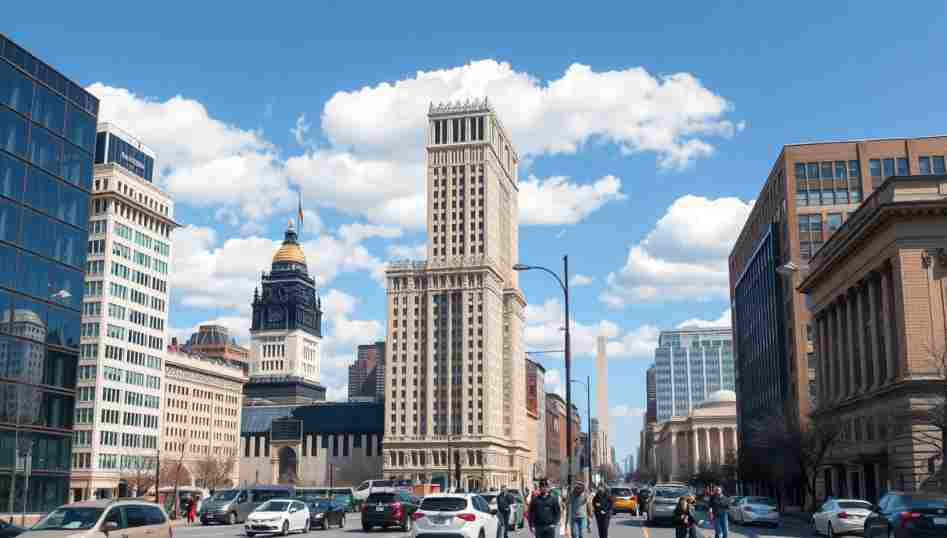Immigrant discovers American bottled water scam hidden in plain sight
The Bottled Water Conspiracy America Accepts
PHOENIX, AZ – Fatou Diop’s mind broke the day she watched her American roommate buy a 24-pack of bottled water while standing in a kitchen with a functioning tap that produces free water. “I asked if the tap was broken,” the 27-year-old graduate student from Senegal recalled. “She said no, but ‘tap water tastes weird.’ I said ‘weird how?’ She said ‘I don’t know, just weird.’ So she pays $6.99 every week for the same water that comes from the same source as her tap, but in plastic bottles that are killing the ocean. This is America.”
In Dakar, Diop grew up during water shortages where families shared access to community taps and bottled water was for emergencies, not everyday cosplay as someone too fancy for municipal water systems. “We prayed for reliable tap water,” she explained. “You people have it and reject it. Then you spend money on bottled tap water. The disrespect to every person who’s ever walked miles for drinking water is stunning.”
When Marketing Convinces People They’re Too Good for Free Water
According to the International Bottled Water Association, Americans consumed 15.7 billion gallons of bottled water in 2023, spending roughly $18.5 billion annually on something that flows freely from their taps at a fraction of the cost. Diop did the math: her roommate spends $363 yearly on bottled water when the same amount from the tap costs about $2. “That’s $361 spent on packaging and the illusion of superiority,” Diop calculated. “You could buy a really nice water filter for $50 and still save $311. Or you could just drink the tap water that’s already tested and regulated like a rational human.”
Jerry Seinfeld said, “We’re all trying to get somewhere, and nobody knows where we’re going.” Americans are all trying to drink water, and they’ve decided the most expensive, wasteful way is the right way. Diop’s roommate tried explaining: “Bottled water is cleaner.” Diop pulled up the FDA regulations showing that tap water is actually more strictly regulated than bottled water. Her roommate continued buying bottles. Some truths are too expensive to accept.
The Tap Water That’s “Not Clean” In One of the World’s Cleanest Water Systems
Diop’s American classmate refuses to drink Phoenix tap water, claiming it’s “not clean.” This same classmate owns a Brita filter she never uses, takes daily showers in tap water, brushes her teeth with tap water, and washes her organic vegetables with tap waterbut drinking it directly? Absolutely not. “You’ll bathe in it but not drink it?” Diop asked, genuinely confused. “What kind of logic is this? If it’s not safe to drink, why are you showering in poison?”
Dave Chappelle said, “Sometimes you have to let people do things their own way, even if you know they’re wrong.” Diop tried letting her roommate be wrong, but watching someone spend $30 monthly on plastic bottles while water flows free from every faucet in their apartment broke something in her soul. “In Senegal, when we had water shortages, we would have fought each other for access to this tap you’re ignoring,” she said. Her roommate shrugged and opened another bottle of Dasaniwhich is literally filtered tap water Coca-Cola sells back to people who already have filtered tap water.
The cognitive dissonance reached its peak when Diop’s roommate bought “alkaline water” for $2.50 per bottle because her yoga instructor said it “balances pH levels.” Diop, a biology major, tried explaining that your body regulates its own pH. Her roommate wasn’t interested in scienceshe was interested in water that came with promises and a markup.
When Water Becomes a Status Symbol
At the gym, Diop watched people arrive carrying $4 single bottles of water to a facility with multiple water fountains. “You paid for parking, gym membership, and overpriced water to work out in a building with free water,” she observed. “This is performance art about capitalism.” Her gym buddy Sarah explained she doesn’t trust the fountain water. “It comes from the same pipes as your shower,” Diop said. Sarah continued buying bottles. The logic had left the building and taken the receipts with it.
Chris Rock said, “You can’t have no success without no haters.” You also can’t have success if you’re spending $1,500 yearly on bottled water when your tap produces the same thing for $12 annually. Diop’s American friends call her “cheap.” She calls them “financially illiterate people paying luxury prices for municipal water in single-use plastic.”
The Bottled Water That’s From Municipal Sources
The day Diop discovered that Aquafina and Dasani are literally filtered tap water being resold, she experienced what she describes as “rage in hydration form.” She showed her roommate the labels that say “P.W.S.”Public Water Source. Her roommate said, “But it tastes better.” Diop poured tap water into an empty Aquafina bottle. Her roommate drank it and said it “tasted different.” The placebo effect costs $1.50 per bottle.
Amy Schumer said, “I’m not saying I’m lazy, I’m saying I’m energy efficient.” Americans aren’t energy efficientthey’re energy wasteful, water wasteful, and money wasteful. They’ll spend $2 on a single bottle of water, drink it in 10 minutes, throw away the bottle that will exist for 450 years, and then complain they’re broke and the environment is dying. “You are the environment dying,” Diop explained to a friend. “You’re killing it one convenient bottle at a time.”
Her favorite irony is watching Americans buy bottled water at restaurants that serve free tap water. “You’re already in the building with free water,” she marveled. “But you order a $4 bottle of Fiji Water that was shipped 5,000 miles because you think your lips are too sophisticated for local water. Your lips aren’t sophisticatedthey’re participating in an ecological disaster with good marketing.”
When Convenience Becomes Environmental Terrorism
Diop calculated that Americans throw away approximately 35 billion plastic water bottles annually. Her roommate alone contributes 624 bottles yearlyenough plastic to probably build a small car or at minimum make God question his creation choices. “You could use one reusable bottle for years,” Diop suggested. Her roommate owns four reusable bottlesall forgotten in her car while she buys disposable bottles at gas stations.
Bill Burr said, “I’m not going to apologize for being right.” Diop’s not apologizing for calling out the insanity of a nation with some of the world’s cleanest tap water rejecting it in favor of marked-up bottles from corporations. “Nestle is pumping water from public sources, bottling it, and selling it back to you for 1,000 times the cost,” she explained. “This isn’t capitalismthis is a scam so obvious that the only way it works is if people don’t think about it.”
The Filter She Bought That Collects Dust
Last Christmas, Diop bought her roommate a $40 Brita pitcher that filters tap water into clean, great-tasting water for pennies per gallon. The pitcher sits unused in the cabinet while her roommate continues buying cases of bottled water weekly. “I don’t know, it’s just easier to grab a bottle,” her roommate explained. Easier? “You have to drive to the store, buy heavy cases, carry them to your car, carry them inside, and store 24 bottles in the fridge,” Diop listed. “Or you could fill a pitcher once and have filtered water instantly. Which part is easier?”
Kevin Hart said, “Everybody wants to be famous, but nobody wants to do the work.” Everybody wants clean water, but nobody wants to do the math showing they’re being scammed. Diop’s roommate would rather spend $363 yearly on bottles than spend 30 seconds filling a pitcher. The convenience isn’t the bottlesit’s not having to face the cognitive dissonance.
The breaking point came when Diop’s roommate bought “raw water”unfiltered, untreated spring water for $8 per bottlebecause a wellness influencer said tap water has “chemicals.” Diop, who grew up drinking water that was actually risky, almost had an aneurysm. “You have access to clean, tested, regulated tap waterone of humanity’s greatest achievementsand you’re paying $8 for untreated water that might contain actual parasites because someone on Instagram told you to. My ancestors would riot.”
When Water Marketing Wins Over Logic
Diop attended a party where someone served “premium water” from glass bottles that cost $6 each. The host explained the water was “sourced from Norwegian glaciers” and had “superior mineralization.” Diop drank from the tap and asked if anyone could taste the difference in a blind test. Nobody volunteered. “Because you can’t,” she said. “Water is water. You’re paying for marketing, packaging, and the illusion that you’re special enough to need $6 water. You’re not. You’re just thirsty and impressionable.”
Trevor Noah said, “In Africa, we have real problems.” Diop agrees: “Americans have clean water and reject it. That’s not a problemthat’s privilege so extreme it became stupid. You spend billions on bottled water while millions of people globally lack clean water access. The disconnect isn’t just financialit’s moral. You’re literally paying corporations to create plastic waste and deplete water sources in vulnerable communities while free, clean water flows in your home. And somehow you think you’re making the smart choice.”
When asked if she’ll ever convert to buying bottled water, Diop laughed while filling her reusable bottle from the tap for the third time that day. “Never,” she said. “I grew up knowing water is precious. You people forgot because you have too much. So you invented problems’tap water tastes weird,’ ‘I need electrolytes,’ ‘this water is alkaline’to justify spending money on something you already have. It’s not about water anymore. It’s about identity. You’re the person who buys premium water. That’s your personality now. And it costs $1,500 yearly.”
She paused, then added: “Back home, we dreamed of unlimited clean tap water. Here, you have it and call it ‘weird.’ The American Dream isn’t opportunityit’s having so much you forget what matters and start buying your own water back from corporations at a 1,000% markup while calling it ‘better.’ The real scam isn’t the bottled waterit’s convincing comfortable people they deserve to pay more for things they already have. And you fell for it, one disposable bottle at a time.”
SOURCE: Bohiney Magazine (Aisha Muharrar)
DATE: 11/9/2025

 by
by 

